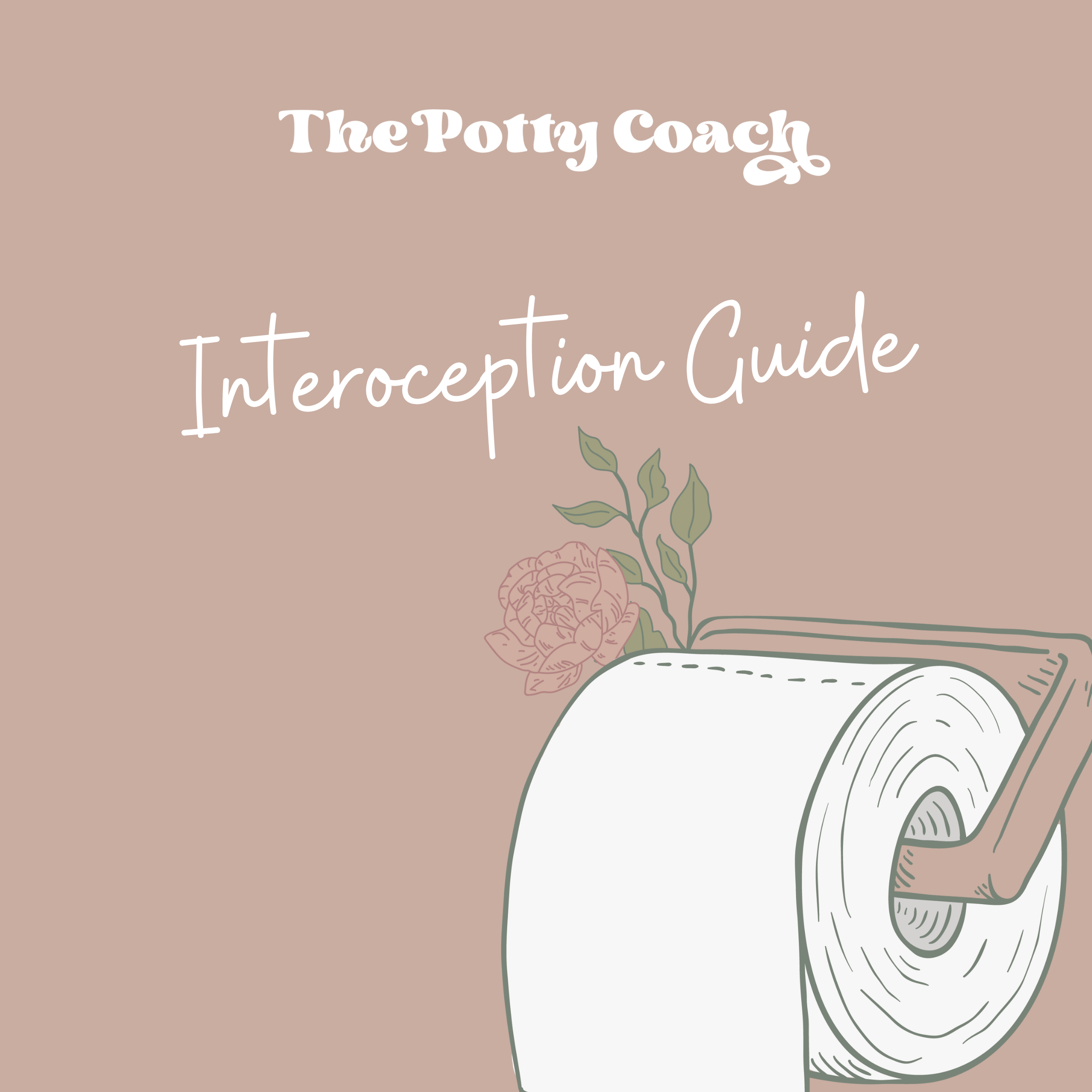 Image 1 of 1
Image 1 of 1


Interoception Guide
Interoception is the body’s ability to sense and understand what is happening inside. Like feeling hungry, thirsty, or needing to use the bathroom. It helps us recognize and respond to our body’s signals and plays a large role in how we feel and behave.
Your child may currently struggle or have a history of struggling with understanding natural bodily cues and functions, leading to issues with getting bowel movements in the toilet.
This guide will give you activities related to promoting interoception skills through the following strategies:
Awareness of Bodily Signals – Interoception involves being aware of internal bodily signals. For children that withhold bowel movements, they may not accurately perceive or interpret these signals, leading to difficulties in recognizing when they need to use the toilet or not wanting to use the toilet.
Sensory Sensitivity – Interoception encompasses sensitivity to sensory stimuli from within the body, including sensations related to bowel movements. Children who withhold bowel movements may have heightened sensitivity to these sensations, leading to discomfort or aversion to using the toilet.
Body Confidence – Developing strong interoceptive awareness can help children feel more confident and empowered in listening to their body’s signals and responding appropriately. For children who withhold bowel movements, building interoception skills can help them feel more comfortable and confident in using the toilet regularly.
Self-Regulation Skills – Interoception contributes to the development of self-regulation skills, which are essential for successful toilet training. By helping children tune into their body’s signals and regulate their emotions and behaviors accordingly, they can overcome challenges associated with bowel movements and develop healthy toileting habits.
*this guide is included in the purchase of Poop Like A Pro course!
Interoception is the body’s ability to sense and understand what is happening inside. Like feeling hungry, thirsty, or needing to use the bathroom. It helps us recognize and respond to our body’s signals and plays a large role in how we feel and behave.
Your child may currently struggle or have a history of struggling with understanding natural bodily cues and functions, leading to issues with getting bowel movements in the toilet.
This guide will give you activities related to promoting interoception skills through the following strategies:
Awareness of Bodily Signals – Interoception involves being aware of internal bodily signals. For children that withhold bowel movements, they may not accurately perceive or interpret these signals, leading to difficulties in recognizing when they need to use the toilet or not wanting to use the toilet.
Sensory Sensitivity – Interoception encompasses sensitivity to sensory stimuli from within the body, including sensations related to bowel movements. Children who withhold bowel movements may have heightened sensitivity to these sensations, leading to discomfort or aversion to using the toilet.
Body Confidence – Developing strong interoceptive awareness can help children feel more confident and empowered in listening to their body’s signals and responding appropriately. For children who withhold bowel movements, building interoception skills can help them feel more comfortable and confident in using the toilet regularly.
Self-Regulation Skills – Interoception contributes to the development of self-regulation skills, which are essential for successful toilet training. By helping children tune into their body’s signals and regulate their emotions and behaviors accordingly, they can overcome challenges associated with bowel movements and develop healthy toileting habits.
*this guide is included in the purchase of Poop Like A Pro course!

